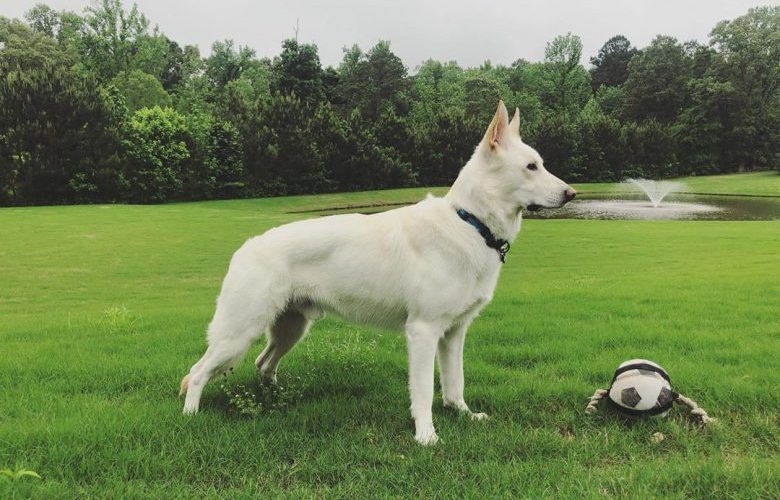
White German Shepherds come from a breed of great working dogs, but they also make excellent family pets. But to truly get the best out of having a pet like this is to start puppy training as soon as possible.
They are very different from other dog breeds and might need specialized training and handling as opposed to such dogs as poodles or Labradors.
By nature, these canines are large, strong, and athletic. They also need a lot of stimulation both mentally and physically, so at home, your puppies training should include lots of exercise. A well-trained White Shepherd can be taught to do almost anything.
They’re so good at being work dogs that there are rescue training classes for these dogs to qualify for police work, like search and rescue operations. They absolutely enjoy challenging activities, and they are eager to please their masters.
As puppies, they can be very energetic and animated that they could knock over small children or elderly pretty easily. To avoid further complicating this danger, puppy training needs to include teaching the puppies not to jump on furniture or people.
German Shepherds mature at the relatively old age of 3 years, so during the early years of your dog’s life, you’re in for a handful. Only proper puppy training can help ensure you have an obedient dog when it grows up.
Start training as soon as you can and establish dominance over your dog. It needs to recognize you as the alpha dog, the leader of the pack. A strong dominating figure that he can look up to, one whose lead he will gladly follow.
Without establishing dominance over your dog, he will have no reason to follow your commands. It might occasionally try to improve its standing within the pack, testing boundaries by trying to be disobedient. Just be firm and consistent so that your dog will always know you’re still in charge.
During the early years, you need to socialize your albino canine with other dogs and people. They need to be exposed and have lost of interactions with other people and dogs to avoid potential aggression issues later on.
Behavioral problems with aggression include, but aren’t limited to, territorial aggression, excessive barking, and even outright violent actions like lunging and biting. So bring them to a park where you can meet up with friends and their dogs, or have friends bring over their dogs to your house.
This won’t only be for socializing, but they can also play and have the exercise they need at the same time.
As a last note, although treats are an essential part of training, you shouldn’t rely on them too much. If you’re puppy isn’t hungry enough for the treat to work, he doesn’t have to do anything you want him to.
If your puppy keeps on thinking like that, treats will never work again and you might end up with a disobedient puppy on your hands. Treats are rewards for good behavior, not bribes.